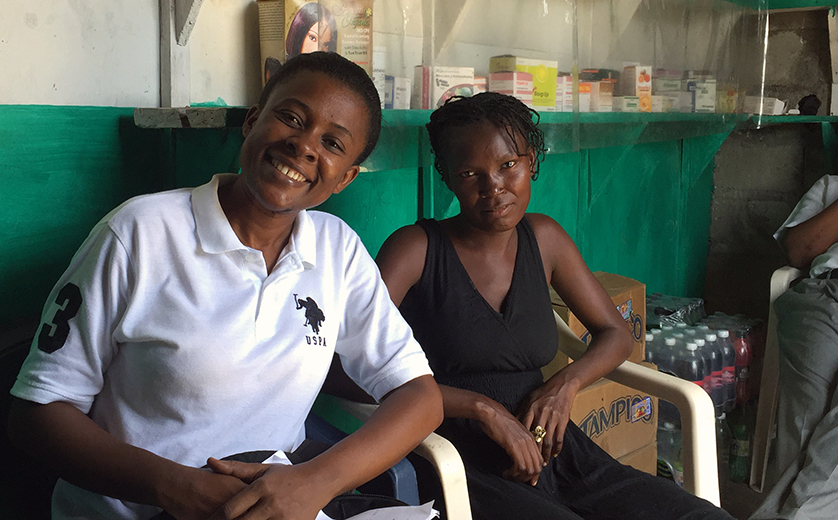Having worked in Haiti for more than 30 years, Lora Iannotti has witnessed the country’s dire health problems and specifically, the lack of young child nutrition in resource-poor settings. Along the way, she has faced daunting circumstances; yet, few have held her back.
Iannotti, associate professor at Washington University’s Brown School, was in Leogane, Haiti, during the 2010 earthquake that destroyed much of the nation’s fragile infrastructure. Leogane was the epicenter of the quake, and Iannotti had to be evacuated to safety. Since then, she has returned to the area many times to continue her research into improving health conditions and nutrition for children. She also has taken students to Haiti as part of a course focused on public health interventions in developing countries.
Nutrition is one of the most important topics in the portfolio of public health work,” Iannotti said, “because it touches on so many different outcomes, ranging from infectious disease to chronic disease to brain and child development.
Lora Iannotti
In several studies, Iannotti found that feeding eggs to children as young as six months can help them grow and reduce stunting. In 2015, she and her co-authors conducted a randomized study in Ecuador that demonstrated eggs significantly increased growth in young children. Eggs were shown to increase standardized length-for-age score and weight-for-age score. Models indicated a reduced prevalence of stunting by 47 percent and underweight by 74 percent. A subsequent paper revealed that eggs also improve biomarkers related to infant brain development.
In addition to making these advancements in the field of nutrition, Iannotti is working to address the need for local public health expertise and program implementation in Haiti. She leads a partnership between the Public University of the North in Cap-Haitien and Washington University, which launched Haiti’s first undergraduate degree program in public health in 2017. The program is on track to serve as a model that can be adopted by other universities within the network of Regional Public Universities throughout Haiti.
That same year, Iannotti and Brown School colleague Patricia Kohl, associate professor, collaborated in a pilot study to create and test an innovative nutrition and parenting intervention to promote healthy growth and development among young children in an urban slum of Haiti. They worked with a team from the Public University of the North in Cap-Haitien led by study coordinator Sherlie Jean Louis Dulience.

Kohl’s expertise in parenting and child development in vulnerable families, coupled with Iannotti’s in young child nutrition and development, proved to be an exciting combination. “We are inextricably linked in today’s world, where global health, environment, and social and economic development transcend country borders,” Iannotti said.
In 2020, Iannotti and Kohl were awarded a five-year $3.2 million grant from the Eunice Kennedy Shriver National Institute of Child Health and Human Development of the National Institutes of Health to further study stunted growth and development in children in Haiti. The researchers are building on their earlier findings to both replicate the egg intervention and test it with a parenting intervention to target other biological, social, and environmental factors.
“Cap-Haitien, Haiti, offers an ideal site for this trial,” Kohl said. “Our team has nine years of experience in the region with established partnerships and a strong research infrastructure.”
Iannotti pointed to an expanded effort in Haiti and Ecuador that focuses on brain studies related to malnutrition. “It is uncharted territory when it comes to the nutrition impacts in infancy and early childhood,” she said. “There are a lot of unknowns.”
Some of the team’s research makes use of tablet-based ultrasound to assess how nutrition affects bones and the brain. “The hippocampus, for example, is important because it is responsive to nutrition,” Iannotti explained. “We want to learn how we can better shape the trajectory of brain development. There are lifelong consequences to being malnourished in these first days of life.”
